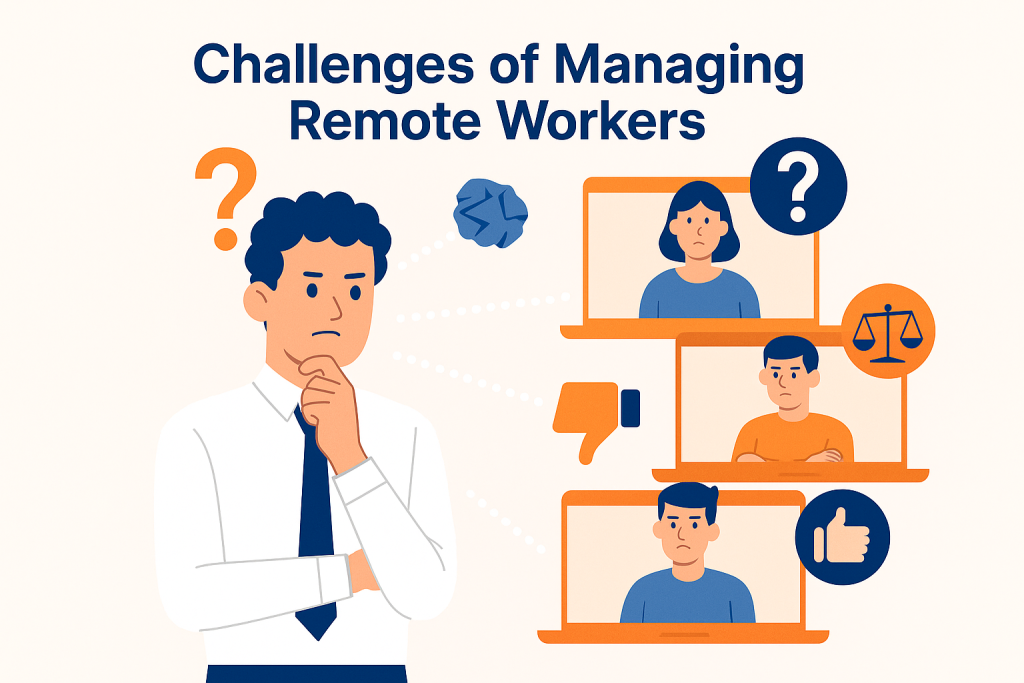We were recently working with a client to help them ‘adjust’ and embed their approach to remote working. After supporting them for a few weeks, we had a need to leave them to themselves for a week before returning. On day two of our absence, we got phone calls from some of the members of staff from that organisation, telling us that working remotely was causing them logistical problems because their senior leader insisted that they all return to the office every other day for ‘data security issues’. Problems with data security had not factored into the discovery and design work we had conducted with the organisation so this really troubled us.
When we returned and spoke to the leader in question, the issue was about data input into a specific spreadsheet that then needed to be sent to another department. The staff were needed to return to the office to update the sheet and send to finance. The data required was mileage and travel expenses. We queried the need for individuals to come into the office to do this and the manager said they wanted to ensure that correct information was being inputted, the accuracy of the spreadsheet was maintained and ‘it was good’ for people to come into the office thereby not losing any social interaction with their colleagues. All of that we totally understood – but every other day?

As part of our discovery work, we had identified that mileage claims could be dealt in a way that did not need a spreadsheet filling in but sent to a shared file for the finance department to download (which they were happy to do). The team manager needed to access the new shared file and electronically authorise payment at the end of each month. That was it.
As we engaged with the individual manager in question, it became apparent that the decision to bring people back into the office was based not on a lack of trust of the workforce, but more a lack of trust and confidence in their own ability to do the tasks that were needed.
The new approach to remote working found the manager we were dealing with unfortunately outside of their comfort zone and the actions and decisions they had taken because of that were a consequence of the three key barriers to effective transition to remote working: assumptions, unwritten rules and personal pride.
Assumptions
“something that you accept as true without question or proof”
When it comes to the working environment, assumptions (rightly or wrongly) are made all of the time. It is assumed that the IT will work, it is assumed that something is safe, it is assumed that something will save money and it is assumed that productivity will increase if you work in a certain way that is different to what you currently do. The biggest and riskiest assumptions are made however, are the ones that relate to ‘the human factor’.
“behind every successful remote worker, is a surprisingly fast internet connection” – Anon
Whether something works, whether it is safe or whether it is efficient is dependent on the human element of that process and the influence they have on things. One of the biggest assumptions made relates to the capabilities of those human beings who are asked to interject, take part in or make decisions about any of such issues. There are regular assumptions made based on the calculus that experience, or age or length of service within a business equates to individuals who can readily adapt to working differently and the use of new technologies.
Remote working brings numerous challenges both in terms of workplace culture and for individuals. For some managers it pushes the ‘stress raising factors’ through the roof and onto another level. Managing the separation of work hours from life hours appear to be made harder and the risks of isolation and disconnectedness of the workforce potentially increases. Teams can feel that their collective ‘creative spark’ is diminished whilst managers worry that individuals are affected by the temptations of home.
A recent work survey found that managers of remote working teams, worried about getting their staff to:
- Prioritise work correctly
- Deal with interruptions
- Not feel ‘siloed’
- Get into bad health habits
and for themselves
- continual anxiousness regarding communication issues
- loneliness
- technology hiccups
- their own status and credibility.
Unfortunately however, I have seen too many times where it has been assumed that individuals in management positions will be able to deal with all of their concerns about employees and their own personal anxieties because “that’s what we expect from our managers in this business”

Unwritten Rules
Nearly every organisation these days has a documented remote working policy. Yet if you really want to understand remote working and how it takes place within the business, it is wise to identify and understand the unwritten rules
The phrase ‘management by presenteeism’ is one that is familiar to those that study the concept of remote working but understanding the ‘unwritten rules’ that drives that type of behaviour is often overlooked or worse, totally underestimated.
Whilst these unwritten rules can sometimes serve as helpful guides they also carry inherent dangers. Unwritten rules are defined as a rule that does not exist officially but one which people generally accept, obey or conform to. They influence individual and group behaviours and are peoples’ perceptions (their individual realities) of ‘the way we do things around here’ These unwritten rules lay the foundation for unhealthy behaviours to thrive and for hindering, negative thoughts to take hold.
Some classic unwritten rules in the workplace regarding remote working that we have come across in our work are:
- Prove you are working by sending the odd email to somebody in the office to demonstrate you are logged on
- You must overcompensate to appear productive when working remotely
- Take your mobile phone with you wherever you go in the house – a lack of response when the boss calls makes them think you are skiving (told to us by somebody who takes the phone to the bathroom with them!)
- When people are working remotely you cannot tell how much time is spent actually working
- Your senior leaders expect managers to know and are responsible for – everything
- Your management ability is solely judged on the productivity of your teams
- Productivity in this place is measured by hours present at a desk
- Be careful – when people work from home they are surrounded by the temptations of home
- Anyone working remotely on a Friday or Monday is simply extending their weekend!
The way people are managed in a remote working environment is driven by the perceptions that managers have of what is required and necessary for them to do to make their position ‘secure’. Add this to the prevailing assumptions and there is a danger that some of the management behaviours and therefore actions and decisions are skewed towards self-preservation and not effective management practices.
What is Agile Working?
Agile working is a transformational approach to how and where work is done. It empowers individuals and teams to perform tasks in the most effective ways—regardless of time, place, or traditional structure. It’s all about flexibility, autonomy, and results.
Learn More About Agile WorkingPersonal pride
The manager we encountered in the earlier scenario had found themselves in a position that challenged their ability to manage in this new environment and required some technical IT skills that they lacked self confidence in using. At that point, for some who are confronted with that situation, personal pride takes over. “What will those they manage think if I don’t get this right?” “What will their peers in management think of them?”, “Will it be obvious that I don’t understand how this works?”
A perceived loss of ‘credibility’ and the revealing of possible competency shortfalls exposes individual vulnerabilities and they look to solutions that can protect that ‘safe state’.
Some managers reflect on their current standing as having got to where they are today because they had to ‘earn their stripes’. They are respected and thought of highly because of the efforts they have put in over time. Exposing them to a new working normality is perceived as expecting them to earn those stripes all over again and personal pride becomes a driving factor in how they will respond and adapt to remote working
The simple solution for individuals who face that dilemma is to construct and or maintain a very similar working environment to what had existed before. Getting individuals back and visible in the office is one such solution. Hanging on to old practices is another.

Effective change management or recognition of the ‘human factor’
Before looking for technical or process related solutions we would advise to consider the assumptions made by the business about peoples abilities, the unwritten rules operating beneath the surface and the personal pride of those that are affected- not least amongst those individuals who are expected to manage the remote workforce of the future. Some call it effective ‘change management’. I prefer to call it ‘the recognition of the human factor’

Richie Maddock is a Founder and Managing Director of Lynchpin & Associates Ltd, a transformation and change consultancy that specialises in putting workplace culture at the heart of business success.
Operating for over 20 years supporting organisations from all sectors, Lynchpin have deployed their ‘Culture by DESIGN’ methodology with demonstrable and practical success when helping organisations with their agile aspirations. www.lynchpinsolutions.co.uk













